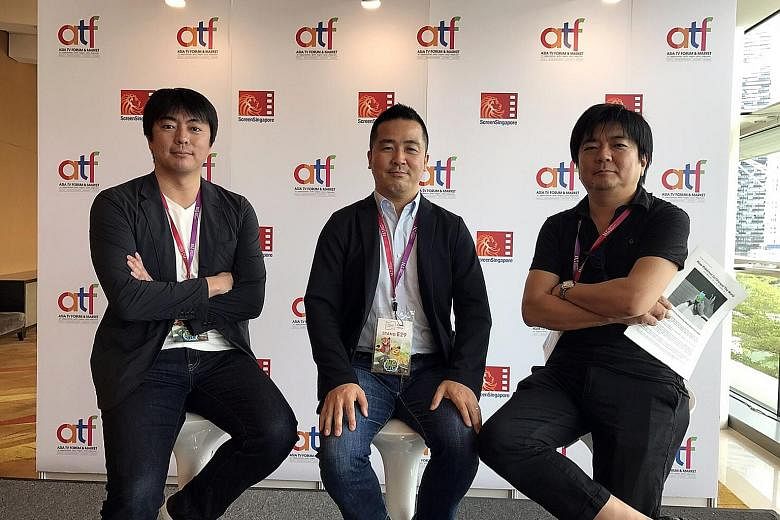It started out as a joke on April 1, 2013. No one had to ask for permission or get funds to develop the project. It was conceived and executed with minimal fuss.
That project grew to become the augmented-reality mobile game Pokemon Go, which has taken the world by storm since it was released in July this year.
It has been downloaded more than 600 million times.
Speaking at the Asia TV Forum & Market and ScreenSingapore at Marina Bay Sands Convention Centre yesterday, Mr Takayuki Hayakawa, 45, says: "Being able to do without huge initial investment is a tremendously important thing. Whether you are talking about venture start-ups, non-profits, civic action or the overthrow of dictators, it all comes from diminishing the cost of collaboration and diminishing the cost of innovation."
He is director of worldwide production and sales at Japan's Fuji Television Network and is a producer of the documentary, How Pokemon Go Changed The World.
The 60-minute-long work will air in Japan on Dec 19 and will be seen in almost 60 European countries in January next year.
An Asian distribution deal has yet to be concluded.
Fuji Television was given exclusive access for the documentary as it is a business partner and investor of Niantic, the San Francisco-based software company behind the game.
Mr Hayakawa describes the office as being "very cosy because it's just a start-up, not fancy like the Google or Facebook-type of office".
The programme covers the birth of the game and the impact it has had on players and includes interviews with the creators.
Niantic's founder John Hanke says in the documentary: "Really important for us to motivate people to go outside, to explore their city. We have an obligation to use technology to encourage people to engage socially with their friends or with their family members in real life."
In the game, players have to locate, catch, train and battle virtual creatures called pokemon (short for Pocket Monsters) that appear on screen as though they are in the same real-world location as the player.
Mr Hayakawa says the documentary will address the positive and negative aspects of Pokemon Go, including accidents in Japan caused by drivers playing the game.
However, he did not answer questions about the number of active users the game has and whether its popularity has peaked.
The level cap for the game is reportedly 40. Mr Hayakawa is at level 21 and has caught more than 100 pokemon.
"Because during these four, five weeks, I'm focusing on shooting this documentary," he says.


